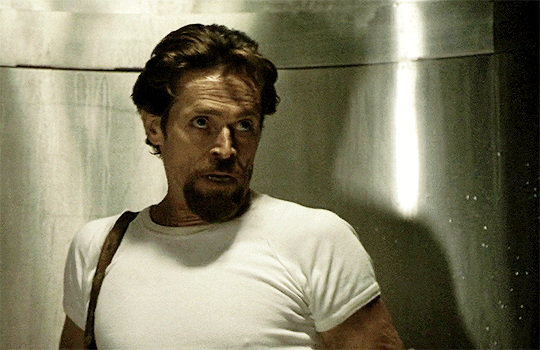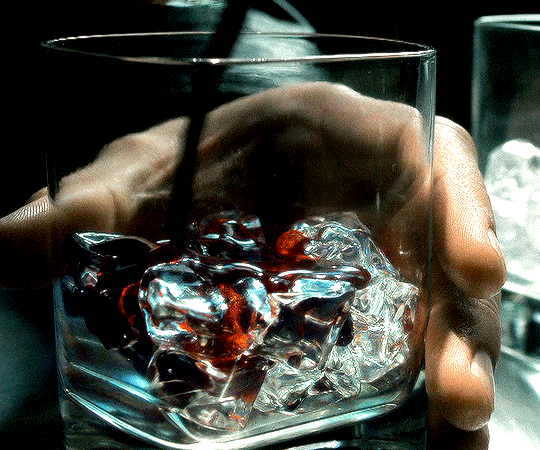Welcome back to The 90-Minute Movie! Whether you prefer a tight script or just have a tiny bladder, you’ll find an entire catalog of great (and not great) movies with runtimes of up to 110 minutes. (I draw the line there and, yes, I’ve had many arguments about whether that’s too long.) I hope you’ll stick around by subscribing. And if you have already subscribed, please forward this to your friends (or foes, I don’t care!)
I love a vampire movie. A passion likely imbued by my early introduction to Buffy the Vampire Slayer on The WB. So, you can imagine my surprise when I stumbled across Daybreakers (2010, 98 minutes) this month. I had never heard of it, much less seen it. And this is why I love what I do—there is no end to the movies I can discover. Often, it feels like kismet when a movie like this shows up on my doorstep. But I am, of course, a realist, and I can only assume Daybreakers found its way to me not by coincidence, but because it recently celebrated its 15th anniversary.
Released in January 2010, a month notorious for being a dumping ground for films the studios have lost faith in, Daybreakers experienced a decent return on budget ($51.4 million to the $20 million it cost to make). A respectable run for a low-budget vampire flick up against holiday releases, still going strong, like Avatar and Sherlock Holmes. I write “vampire flick” because Daybreakers doesn’t neatly fall into any one genre. Horror? Yes. Sci-fi? Yes. Action? Also, yes. It is its fluidity through genres that perhaps turned some viewers off from the movie. (It carries a low but respectable 69% on Rotten Tomatoes.)
To genre-jump in your sophomoric release is quite brave, but the Spierig Brothers don’t seem to be the types to mind. The two Australian filmmakers prefer to work with lower budgets and make the films they love. Since Daybreakers, they haven’t become household names but have had a decent run with movies like Jigsaw and Predestination (also starring Ethan Hawke).
Something I have said repeatedly in these 90-minute movie essays is how constraints (such as time and budget) can force great creativity. The Spierig Brothers agree, with Peter saying in a 2010 interview:
“The reality is that quite often when you have very limited resources, it forces you into a situation where you have to be creative or find creative solutions to problems rather than just throwing money at them… And quite often that is a better way to go — to find a way to deal with things.”
Constraints drive creativity. As a writer and a person with a budget-driven but creative day job, I know this all too well. My best poetry comes from prompts. My greatest outcomes at work are often the result of having to work with a crazy deadline or a small budget. When you have limitless resources, as many big movie directors do, you run the risk of bloating your story and film. We see it all the time these days, and many of us are becoming tired of the excess.
[Getting off my soapbox now.]
If you’re unfamiliar, and I am certain many of you are, Daybreakers takes place “ten years in the future” – 2019. Not unlike the real 2020, a plague breaks out (this time definitely caused by bats), that begins to turn humans into vampires. But unlike every other vampire movie ever made, the vampires become the ruling class, and humans are few and far between.
In this world, human blood is a limited resource on the verge of being completely depleted. Edward Dalton (Ethan Hawke), a vampire hematologist, has been tasked by the CEO of Bromley Marks to invent a blood substitute to feed the masses. For the CEO (Sam Neill), this is a business opportunity, but for the “vegan” Edward (he doesn’t drink human blood), it’s an opportunity to rebuild the human race. A freak accident leads Edward to cross paths with Audrey (Claudia Karvan) and Elvis (Willem Dafoe)— two humans on the verge of a cure for vampirism.
After watching Daybreakers, you may be surprised to find (as I certainly was) that it is not based on a comic book. I was so convinced it had to be based on a comic or graphic novel, I Googled it in the middle of the movie. I think what was driving this suspicion was not just the plot, but the cinematography, which certainly borrowed from movies like Blade, Blade Runner, and other sci-fi-type noirs. As a Syfy article about the movie says, “Daybreakers had a sleek, sickly look — all greys and greens — that gave the story a nightmarish glow.”
My initial gut reaction was that this “nightmarish glow” cheapened things, but after a few minutes, it grew on me, and I came to appreciate it. Especially as we join the humans and see daylight. Bright, warm, and expansive, the daytime scenes are the opposite of the dim and claustrophobic lives of the vampires. Many of whom have convinced themselves that the virus was a gift, despite many vampires starving and turning into hideous and deformed bat creatures as a result.
That leads me to the heart of this story - capitalism. Or at least, one could argue that is the heart of this story. In the Daybreakers world, an elite few control the distribution of human blood. Vampires are starving, but the powers that be refuse to help them, instead seeking ways to become wealthier and more powerful. How depressing is it that even as IMMORTAL CREATURES we would choose capitalism above all else?
I had a hard time taking this in. Is it true that people would likely monetize human blood and let the poor starve to death? YES. Do I need to face that when I am trying to escape that very piece of news right now? NOT REALLY.
I will give Sam Neill his flowers as Charles Bromley, our evil CEO. He breathes life into a bloodless, heartless villain. The character is written as being a bit one-note (he’s evil, full stop), but Neill manages to draw us in despite these limitations. Ethan Hawke is incredible as usual. I have a hard time criticizing him. I think it’s because he gives every performance his all, no matter the movie, and I have always been impressed with his choices. I can only hope he has an Oscar on the way soon, but he seems content in his current era playing villains and whatnot.
This brings me finally to Willem Dafoe. It would be a pleasure to simply end every newsletter with a look at the man, the myth, the legend that he is. Dafoe’s character is funny to me. In most post-apocalyptic narratives, the source for a cure is a young woman or girl (Last of Us, Children of Men, Resident Evil etc.) But here we’re given a middle-aged mechanic named Elvis. Elvis manages to get himself into an accident and reverse his vampirism. It takes Edward to figure out that the cure itself is controlled exposure to sunlight. I don’t want to waste time on this, but basically, getting as near death as possible, burning in the sunlight, will turn a vampire human again.
(I won’t lie to you, this makes me think of Uncle Eddie in Christmas Vacation explaining why his daughter isn’t cross-eyed anymore. "She falls down a well, her eyes go cross. She gets kicked by a mule. They go back. I don't know...")
Anyway, Elvis is the key, and it’s a fun twist on the typical trope of someone innocent saving humanity. I think that’s sort of the overall vibe for this movie. The narrative choices are interesting. The idea is unique and fun— I can’t imagine a movie like this now being released in theaters up against some bullshit like Avatar. The ingredients are all there, but it misses the mark in enough areas that the end product is shaky. Bromley’s relationship with his daughter has no purpose other than to prove that he is evil, and we already know that. The loss of almost the entire supporting cast somehow feels predictable; I think because it leaves only a romantic relationship standing (yawn). And the world is almost so impressively rich that there are other loose ends I wish had been tied up by the end. …But maybe they thought they’d get a sequel.
What I will say is that Daybreakers gave me a lot to think about. A lot to yap about. A lot to write about. And to me, that is an excellent marker of a movie that is worthwhile. I don’t think films need to be perfect, but they need to have meat on the bone for us to pick at and fight over. I’ve been turning this one over in my head for days, so I’d of course love to hear from all of you. Am I giving it too much grace? Not enough? Let me know in the comments.








![You'll Never Walk Alone — Ethan Hawke as Edward Dalton DAYBREAKERS [2009] You'll Never Walk Alone — Ethan Hawke as Edward Dalton DAYBREAKERS [2009]](https://substackcdn.com/image/fetch/$s_!FTgJ!,w_1456,c_limit,f_auto,q_auto:good,fl_lossy/https%3A%2F%2Fsubstack-post-media.s3.amazonaws.com%2Fpublic%2Fimages%2F31598dc6-d477-4db2-abe4-c9806fb33bcf_540x304.gif)


I love the idea of vegan vampires. It sounds like a bit from “what we do in the shadows.”
I love Daybreakers. The finale, I think, was a little overblown, with way too many twists and reversals. But it is overall a great mid-budget genre movie that screams cult classic. I'm hoping one day the Spierigs will make a sequel.